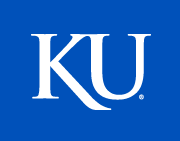Kansas Fire & Rescue Training Institute
The Kansas Fire & Rescue Training Institute was created in 1949 by Kansas law to provide training for the Kansas Fire Service. An important part of KU Professional & Continuing Education, the Institute provides firefighter training, fire officer training, certification training and technical rescue training services through a "Mobile Fire Academy" concept. This concept accommodates local needs through training delivered anytime, anyplace, or anywhere in Kansas.
Visit the Kansas Fire & Rescue Training Institute homepage
Questions? Contact the Institute at 866-804-8841 (toll free).
Courses & Events
Best Practices in Community Risk Reduction F0635
This course contains no sessions
Click here to be notified about the next scheduled program.
Building Organizational Support for Community Risk Reduction F0636
This course contains no sessions
Click here to be notified about the next scheduled program.
Command and Control of Wildland Urban Interface Fire Operations for the Structural Chief Officer F0612
March 5-6, 2026, Andover Fire and Rescue Sta 2
April 20-21, 2026, Lawrence-Douglas County Fire Medical-Jayhawk Room
Decision Making for Initial Company Operations
This course contains no sessions
Click here to be notified about the next scheduled program.
Driver/Operator: Aerial Training
January 26-29, 2026, McConnell Air Force Base Fire Dept
Driver/Operator: Pumper Training
February 2-6, 2026, Leavenworth Fire Dept
Driver/Operator: Pumper/Aerial Training
This course contains no sessions
Click here to be notified about the next scheduled program.
Driving Simulator Training
This course contains no sessions
Click here to be notified about the next scheduled program.
Executive Skills Series: Exercising Leadership Through Difficult Conversations F0522
This course contains no sessions
Click here to be notified about the next scheduled program.
Exterior Firefighting
Saturday, February 28, 2026, Holton Vol Fire Dept
Saturday, May 16, 2026, Enterprise Public Works
Fire Fighter 1 Training
This course contains no sessions
Click here to be notified about the next scheduled program.
Fire Fighter 2 Training
February 6, 2026 to March 9, 2026, Concordia Fire/EMS Dept
Fire Officer 1 Training
March 9-13, 2026, Chanute Fire Dept
Fire Officer 2 Training
This course contains no sessions
Click here to be notified about the next scheduled program.
Fire Service Instructor 1 - Online Web-Based Course - Part 1
July 1, 2025 to July 1, 2026

 Cart (0)
Cart (0)

